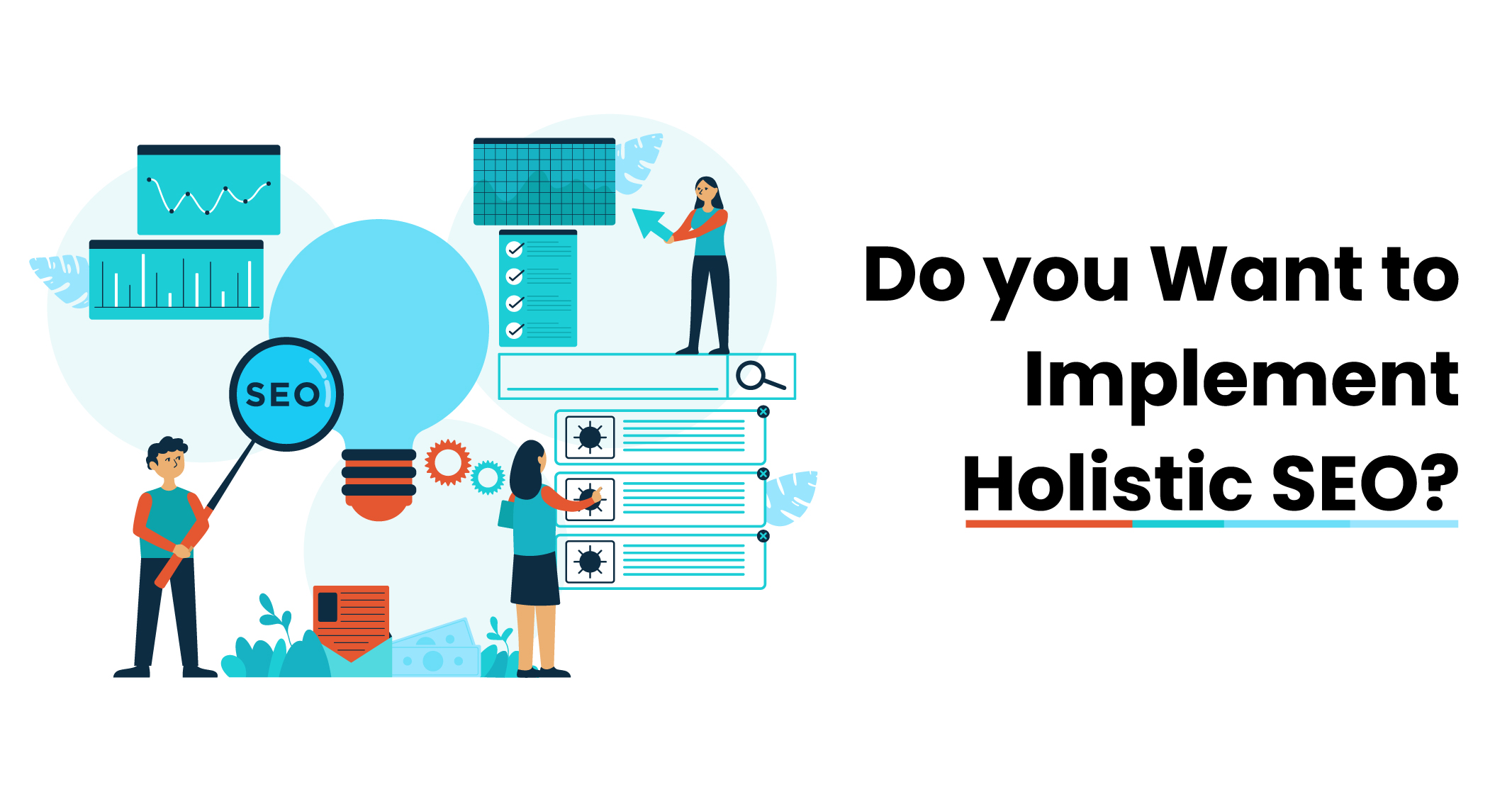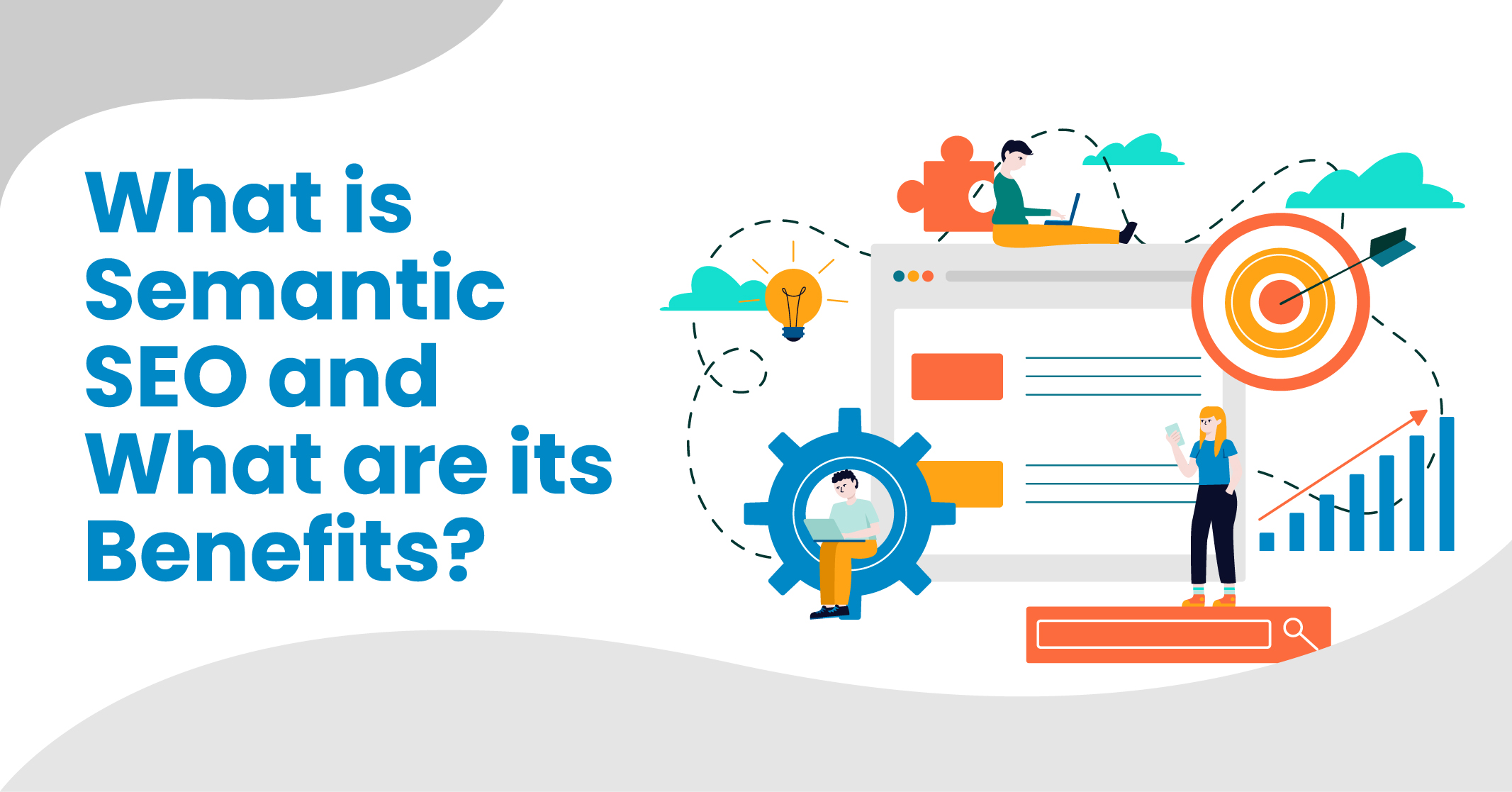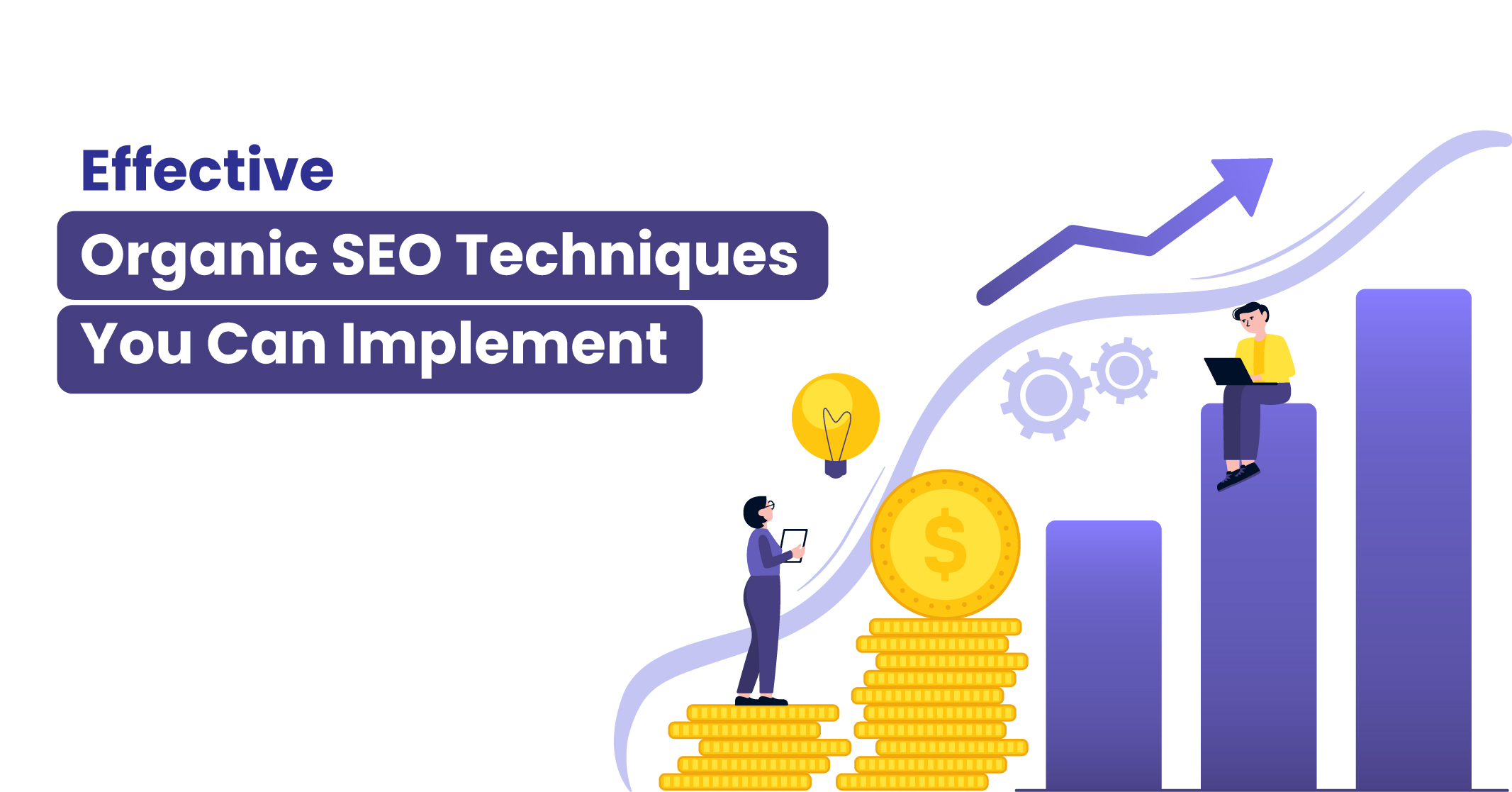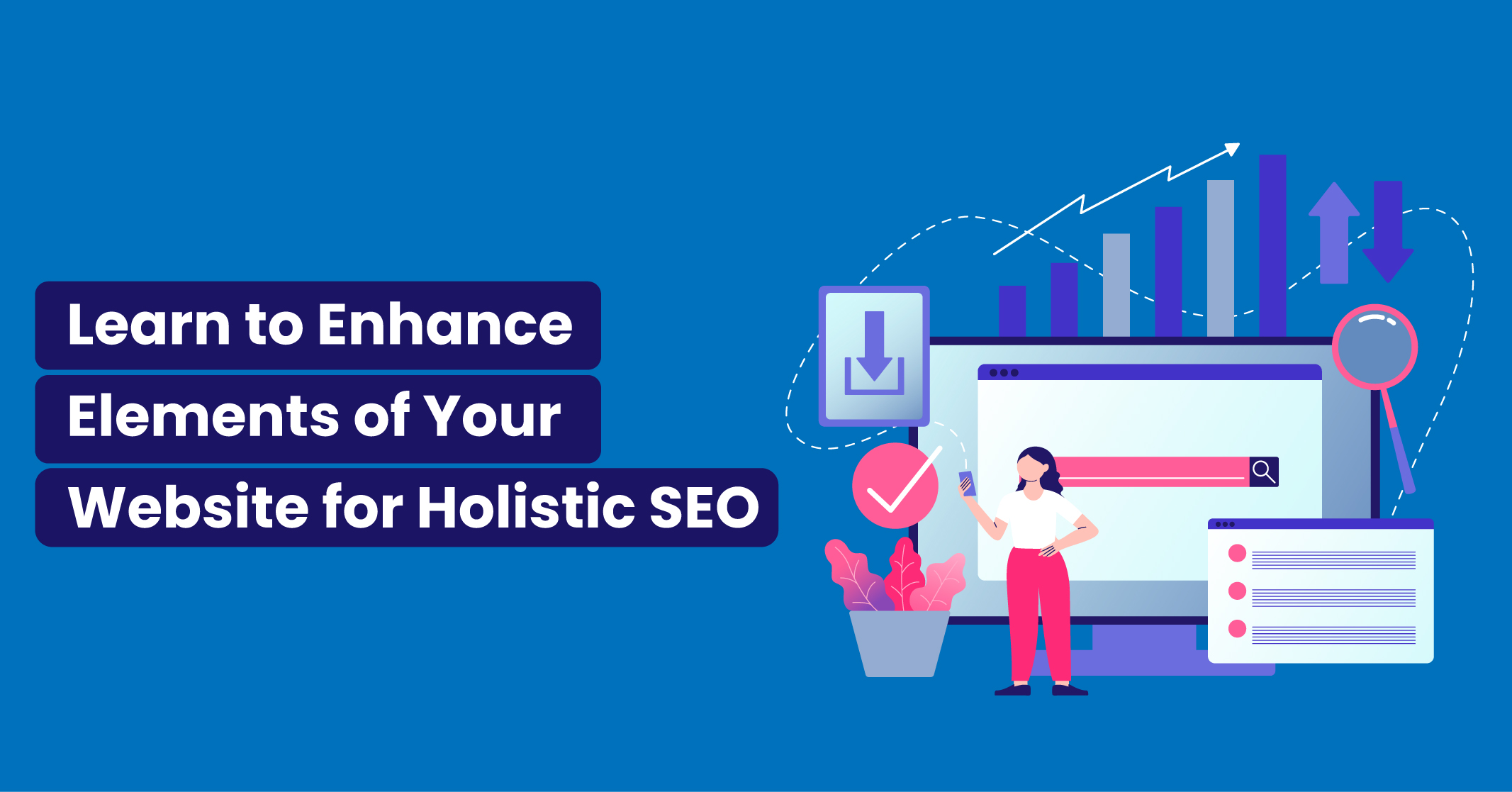Learn to Enhance Elements of Your Website for Holistic SEO
A holistic SEO approach is essential because it aligns with Google’s mission of providing users with the best possible search experience. It involves optimising aspects of a website including:
- Technical SEO
- Content Quality
- User Experience
- Security
To create a website that meets users’ needs on all levels. By using this approach, website owners can ensure that their site is not only easily discoverable but also user-friendly, engaging and secure.
Click Here – Free 30-Minute Strategy Session
Be quick! FREE spots are almost gone for this Month
Free Quote
Few effective SEO tricks:
- To get a high ranking in the competition, a website needs to have a good design, content and a fast and reliable engine.
- Search engines take their recommendations seriously, and they only recommend websites that meet and exceed the standards mentioned above. Therefore, using “tricks” to manipulate search rankings won’t work.By working on improving every part of a website, website owners can make gradual gains and improvements that add up over time, leading to higher search rankings and increased visibility. A holistic approach to SEO is essential in today’s competitive online environment, where every small gain counts
Why Should You opt for Holistic SEO?
In the early days of SEO theory, people could use tricks like stuffing keywords and internal links on pages, or scraping content from other sites, to rank high in search results.
However, those tricks are no longer effective since search engines, especially Google, have improved their algorithms over time. Nowadays, search engines prioritise high-quality websites that offer great:
- User Experience
- Relevant Content
- Up-To-Date Security
Building an exceptional website with high-quality content and offering a great user experience can improve your SEO in the long run. Great websites tend to attract more backlinks and social media attention, which signal to search engines that your website is popular and trustworthy. Besides, people behave differently on a website that they like, resulting in higher conversions.
How Holistic SEO Can Help You?
Holistic SEO is crucial because it aligns with the goal of search engines to provide the best possible results for their users. By focusing on improving your website’s relevance, quality, authority, usability, security and performance, you can increase your chances of ranking higher in search results.
What To Do?
Holistic SEO can also help future-proof your website against any algorithm updates by creating a high-quality website that serves its users well and avoids being penalised for low-quality or spammy content.
Do you Want to Implement Holistic SEO?

If you are planning to implement holistic SEO, here are a few SEO tips to help.
- Content: Content is the cornerstone of SEO. You must create content that meets the search intent of your target audience, provides valuable information or solutions to their questions or problems, and motivates them to act.
What To Do?
Optimise your content for relevant keywords, headings, images and other elements that can help your content rank higher and attract more clicks. - Technical: Technical SEO refers to optimising your website’s structure, code and performance for both search engines and users.
What To Do?
Ensure that your website is easy to crawl, index and understand by search engines, loads quickly, is mobile-friendly, secure, error-free, well-organised, user-friendly and accessible. - On-page: On-page SEO involves optimizing individual web pages for specific keywords or topics.
What To Do?
Ensure that each page has a clear purpose, an optimized title tag, an engaging meta description, an appropriate URL structure and relevant internal links. - Off-page: Off-page SEO involves building your website’s reputation and authority through external factors such as reviews, citations and mentions.
What To Do?
Ask your customers to leave reviews and feedback based on their experience.
Learn More: 7 Powerful On-Page SEO Tips for Small Business
All You Need to Know About Holistic SEO
SEO requires patience and persistence to see results. It’s not something that you can fix overnight. SEO involves making consistent and incremental improvements to your website over time. These improvements could be big or small, but they will add up in the long run.
What To Do?
It’s also important to understand that search engines don’t immediately recognise changes you make to your website. It takes time for them to crawl and index your pages and update their algorithms to reflect those changes.
So, it’s crucial to be patient and not expect immediate results. Keep making improvements and have faith that they will eventually pay off.
What is Semantic SEO and What are its Benefits?

Semantic SEO is an advanced approach to search engine optimization that emphasises the use of natural language and context to optimise content for search engines.
Key Points to Remember:
- Semantic SEO focuses on the meaning and intent behind the search query and the content that matches it.
- By focusing on the semantic meaning of keywords and phrases, semantic SEO enables you to better understand what users are looking for and what they expect to find. This helps you create more relevant and engaging content that meets their needs and expectations.
- Semantic SEO encourages the use of high-quality, informative content that answers users’ questions and solves their problems. This results in content that is more valuable, shareable and linkable, which helps improve your search engine rankings and traffic.
- By optimising your content for semantic search, you increase your chances of appearing in featured snippets, knowledge panels and other rich snippets that provide users with quick and relevant answers to their queries. This can help you increase your visibility and attract more traffic to your site.
- Semantic SEO helps improve the user experience by providing more accurate and relevant search results. This leads to increased engagement, lower bounce rates, and higher conversion rates, as users are more likely to find what they are looking for and act on your site.
Overall, semantic SEO is a powerful tool for improving your search engine rankings, traffic and user engagement.
By focusing on the meaning and intent behind the search query, you can create content that is more valuable and relevant to users, which ultimately leads to better results for your business.
Learn More: Semantic Search – Don’t Miss Out on This Most Important Aspect of SEO
Should you go For Organic or Paid SEO?
When it comes to SEO, there are two main approaches: organic and paid.
Organic SEO refers to the process of optimising your website and content to rank higher in search engine results pages (SERPs) without paying for ads. This includes:
- Keyword Research
- Optimization
- On-Page Optimization
- Link Building
- Content Creation.
Key Advantages of Organic SEO:
- Organic SEO can generate sustainable, long-term traffic to your website
- Organic SEO also tends to be more cost-effective in the long run, as you’re not paying for each click or impression.
On the other hand, paid SEO involves paying for ads to appear at the top of search engine results pages. This can include text ads, display ads, or shopping ads, depending on the platform and your goals. The main benefit of paid SEO is that it can generate immediate results, as your ads can start appearing as soon as you launch your campaign.
Key Advantages of Paid SEO:
- Paid SEO can also be highly targeted, as you can choose specific keywords, locations, demographics and other parameters to reach your ideal audience.
- Paid SEO can be more expensive and less sustainable than organic SEO, as you need to continue paying for ads to maintain your visibility.
In general, a holistic SEO approach will include both organic and paid strategies, as each has its strengths and weaknesses. By combining both approaches, you can maximise your visibility, attract more traffic and achieve your marketing goals more effectively.
Effective Organic SEO Techniques You Can Implement

Planning to up your SEO game? Consider implementing these six effectives organic SEO techniques that will help you use to improve your website’s search engine rankings:
- Keyword research: Conduct thorough keyword research to identify the most relevant and valuable keywords and phrases for your website’s content. Use keyword research tools to identify keywords with high search volume and low competition and incorporate them naturally into your website’s content.
- Quality content creation: Create high-quality, informative and engaging content that aligns with your target audience’s search intent. Use relevant keywords, optimise your headings and include internal and external links to improve your content’s search engine visibility and user experience.
- On-page optimization: Optimise your website’s metadata, such as title tags, meta descriptions and header tags, to include relevant keywords and provide accurate information about your content. Use structured data markup to help search engines understand your website’s content better.
- Technical SEO: Ensure that your website’s technical infrastructure is optimized for search engines. This includes optimising your website’s URL structure, improving page load speed, using HTTPS encryption and ensuring that your website is mobile-friendly and has a responsive design.
- Link building: Develop a comprehensive link-building strategy to attract high-quality backlinks from other authoritative websites. Use guest posting, broken link building and other white-hat link-building techniques to improve your website’s domain authority and search engine rankings.
- Social media marketing: Promote your website’s content on social media platforms to increase visibility, drive traffic and improve engagement. Use social media platforms like Facebook, Twitter and LinkedIn to engage with your target audience, share valuable content and build a loyal following.
Conclusion: Implementing these SEO techniques will help your website rank higher. This will further allow you to drive organic traffic to your website and offer an improved user experience. If your competitors are not implementing SEO techniques, you can gain a competitive advantage by doing so.
By outranking your competitors in search results, you can attract more customers and increase your market share.







LEAVE A REPLY